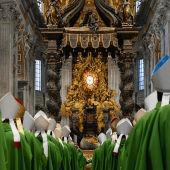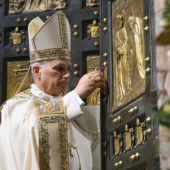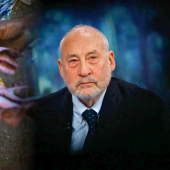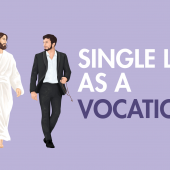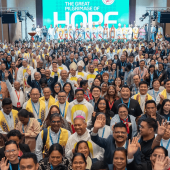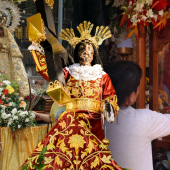Eucharistic Revival in the Philippines
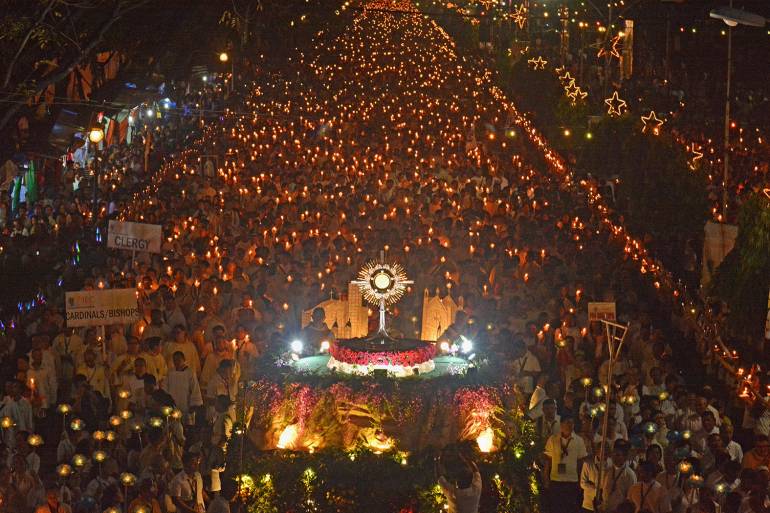
Pope Francis, at 86, does not slow down. We have witnessed how, during World Youth Day 2023 in Lisboa, Portugal, he was non-stop in his activities and participated dynamically in every event scheduled for him without complaint.
Whether sitting on a wheelchair or walking with a stick, bearing with his companion called sciatica, and amid intense heat in Lisboa, he attended meetings with great leaders and small people, talking and listening to young participants telling their stories, journeying together with everyone.
From Day One, more than half a million young people chanted, shouted, and sang as they packed every event to give Pope Francis rock star support. At the World Youth Day in Portugal, the Jesuit pontiff attended one of the largest and "delightfully noisy" jamborees of Catholic youth in the world. Everyone I know was wishing and praying for 400,000 priests and 5,000 bishops all over the world to emulate the Holy Father's pastoral, unwavering, dynamic, creative, and audacious type of new evangelization! And the Catholic Church will show the beautiful face of God to the world!
One of the most significant moments in those days in Portugal was his urgent call to revive Eucharistic adoration. The Holy Father made this call during the homily for vespers at the Jerónimos Monastery, located in Lisbon, on the first evening of his pilgrimage.
"Curiously, the prayer of adoration—we have lost it," Pope Francis admitted. "We have lost it, and everyone—priests, bishops, consecrated men and women, laypeople—has to recover it. It’s to be in silence, before the Lord," he seemed to challenge all those present.
Then, on that same solemn occasion, he asked the priests, bishops, consecrated men and women, and laypeople present: "How do I pray?" And he added: "Only in adoration, only before the Lord, can the taste and passion for evangelization be recovered."
Body and Blood of Christ: The Miracle of the Ordinary
Pope Francis, as always, goes back to the basics—the basics of the new evangelization. Bread is ordinary. Grape wine too. But after the consecration, Hoc est Corpus Meum, "This is my Body," the miracle happens, and it happens every day during the holy mass.
Correspondingly, we also go back to the basics, remembering how Saint Gregory the Great (AD 540–604) captured the same Eucharistic mystery in these words: "Who doubts that in the very hour of the Sacrifice, at the words of the Priest, the Heavens be opened, and the choirs of Angels are present in that Mystery of Jesus Christ."
The ordained priest, and only he, can make the Real Presence possible, and no one else can accomplish that. No king, no genius, not even the will of a thousand angels, or the combined efforts of a whole nation, can substitute for the power of a priest’s words: "This is My Body...This is the Chalice of My Blood."
The Fathers of the Church did not hesitate to say that there is nothing less of a miraculous change taking place on the altar than what took place in the womb of Mary at the moment of the Incarnation. Before Our Lady pronounced the word, there was no Christ on earth. But the moment she did say, fiat voluntas tua, "not my will but yours be done," Jesus took dwelling in her womb, "and the Word was made flesh" (John 1: 14).
In his work Dignity and Duties of the Priest, St. Alphonsus de Liguori declared that "God himself descends on the altar" in obedience to the most solemn words the priest utters during the consecration, Hoc est Corpus Meum. Faith sees it, and the Catholic heart feels it.
God comes down whenever the priest calls Him, and as often as the priest calls Him, even if the priest should be His enemy, meaning, even though the priest is unworthy, impure, and disgraceful (unable to go to confession before celebrating the mass), God still obeys him.
In his 2004 letter, St. John Paul II told his priests: "If we feel moved before the Christmas crib when we contemplate the Incarnation of the Word, what must we feel before the altar where, by the poor hands of the priest, Christ makes his Sacrifice present in time? In the here and now! We can only fall to our knees and silently adore this supreme mystery of faith."
As if to dramatize this reality, St. Augustine of Hippo noted that the angels can only act as altar boys, assisting the priest who presides over the Eucharistic celebration. Truly, really, and not just symbolically! While on their knees, the priest and the Catholic faithful praise God in awe, in submission, and in latria, the Greek word for adoration and worship dedicated only to God. Why latria? It’s because YHWH God—omnipotent, omniscient, and omnibenevolent—is indeed present in the form of Bread and Wine!
The Pope's urgent call to revive Eucharistic adoration
The National Eucharistic Revival, a pastoral crusade initiated by the Bishops Conference of the United States, is sweeping every diocese in North America. The bishops read the signs of the times and concluded that the Eucharistic Revival is urgent and necessary for the gravest reason, namely, that the majority of American Catholics do not believe in the Real Presence.
In one New York Times poll in 2002, about 70 percent of all American Catholics in the age group 18–44 believed the Eucharist was merely a "symbolic reminder" of Jesus. The same number did not change after twenty years; it even got worse.
The Love Our Pope Movement (LOPM) has recommended to some Filipino bishops, members, and leaders of the CBCP, that a Eucharistic Revival is also a pastoral need in the Philippines for the same gravest reason, is, the waning of faith in the Real Presence and decreasing attendance at Sunday Eucharistic celebrations (data taken from the Fourth Quarter 2022 Social Weather Survey).
Today, a huge number of the baptized who claim to be Filipino Catholics ignore the Sunday Eucharistic celebrations altogether—and they are in the tens of millions—and fewer Catholics come to adore the Eucharistic chapels.
There is also the question of whether going to Mass every Sunday is a manifestation of the Catholic faith in the Holy Eucharist among Filipino Catholics. This question is raised because, before the COVID epidemic (2019–2022), the world watched how millions of devotees of the Black Nazarene appeared to manifest an unexplainable, almost fanatical, desire for the statue rather than for the Holy Eucharist.
Of course, there is Godliness in the annual show of faith for millions of devotees. There’s the love of God. And there’s something beautiful in the Filipino soul! But what we have seen is a pastoral challenge. We saw how millions of Catholics appeared not to understand that the mulatto statue is a representation (therefore a blessed symbol), but the Holy Mass is the Real Presence of our Señor Nazareno.
It’s easy to understand when the secular mind asks the theological question: "Will God really obey the priest and make present the divinity and humanity, soul and body, of Jesus our Savior, really present, in the form of the Bread in the Eucharist?" It’s because the Real Presence is beyond the secular mind! However, it’s a different story when Catholics themselves say that the Eucharist is not actually real but merely symbolic.
For this reason, the Love Our Pope Movement (LOPM) will launch two important revivals in the Philippines: a eucharistic revival and a revival of love and obedience for the pope, the Vicar of Christ on Earth, believing that both revivals can pave the path for a CATHOLIC REVIVAL in the third millennium.
Allow me to end with a lovely quote from the National Eucharistic Revival project of the USCCB:
"Our world is hurting. We all need healing, yet many of us are separated from the very source of our strength. Jesus Christ invites us to return to the source and summit of our faith in the celebration of the Eucharist."
Dr. Jose Mario Bautista Maximiano is the Lead Convenor of the Love Our Pope Movement (LOPM) and the author of “Church Reforms – Semper Purificanda” Volume One (Claretian, 2023).
Radio Veritas Asia (RVA), a media platform of the Catholic Church, aims to share Christ. RVA started in 1969 as a continental Catholic radio station to serve Asian countries in their respective local language, thus earning the tag “the Voice of Asian Christianity.” Responding to the emerging context, RVA embraced media platforms to connect with the global Asian audience via its 21 language websites and various social media platforms.









